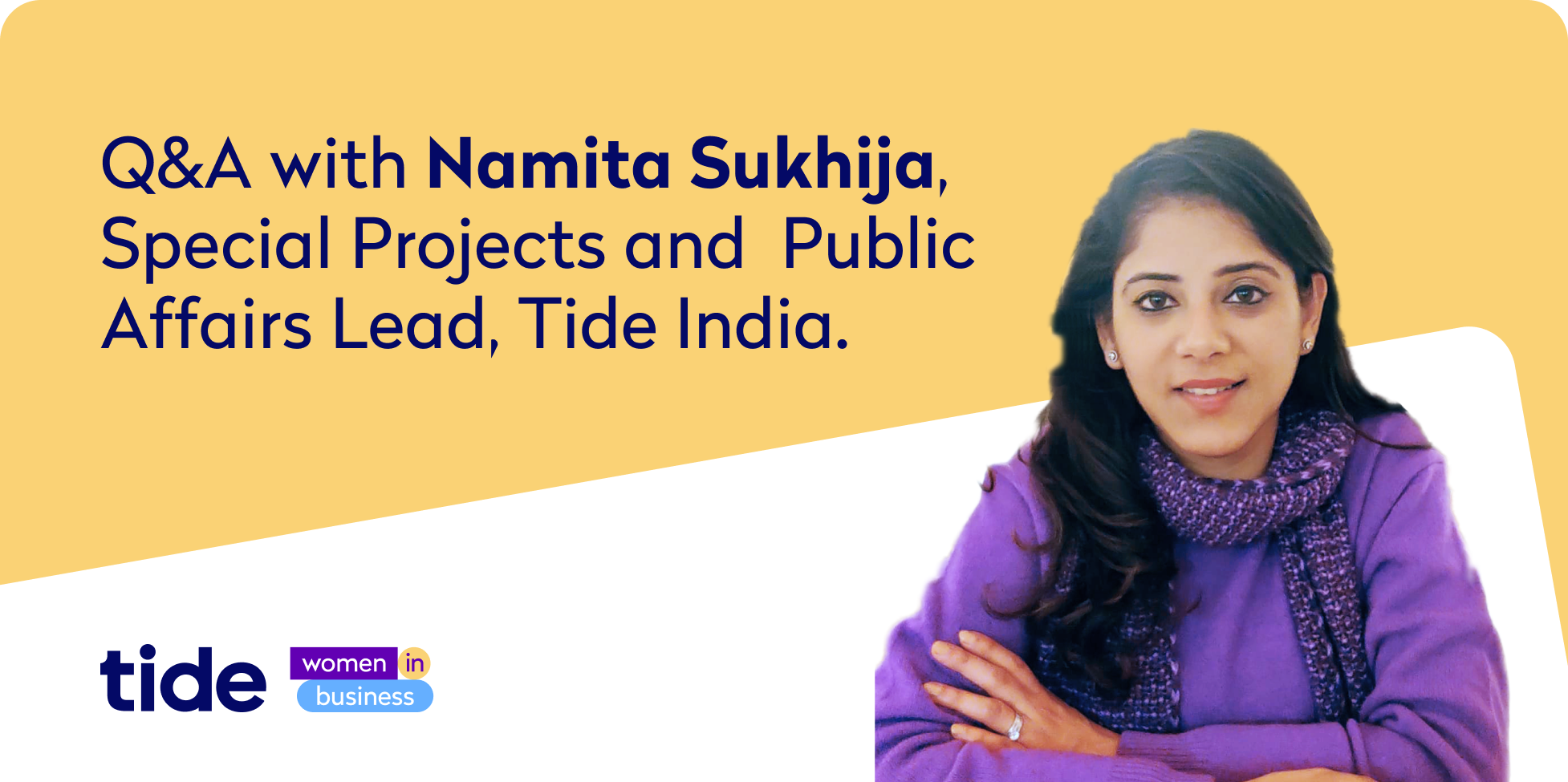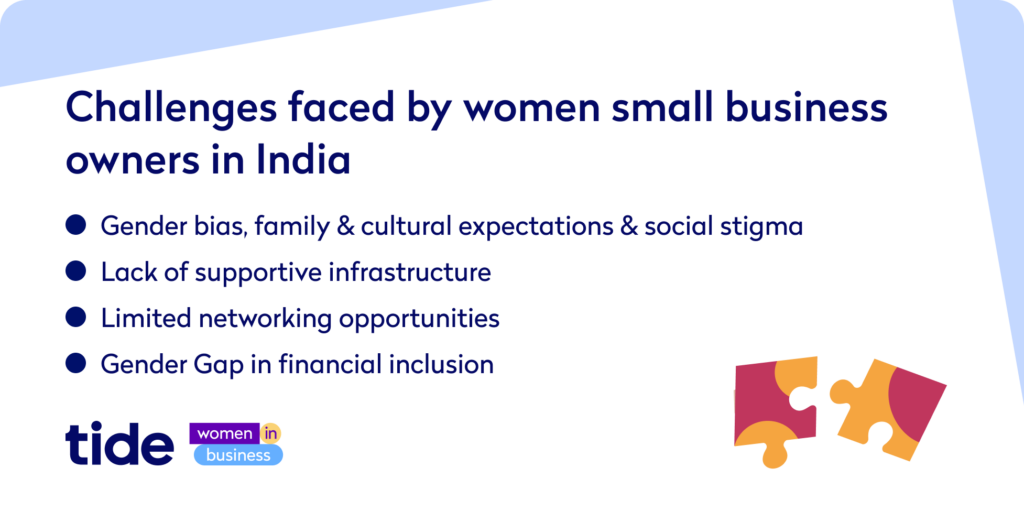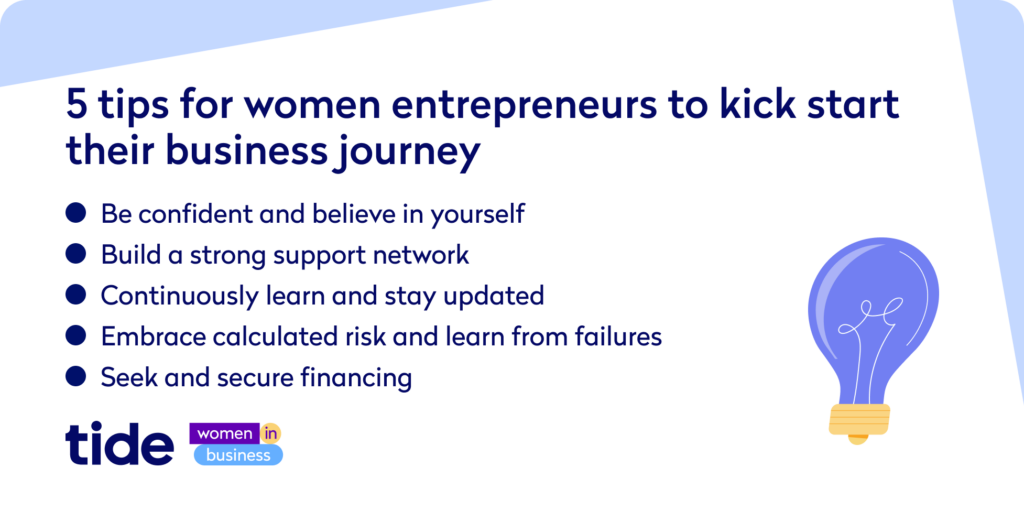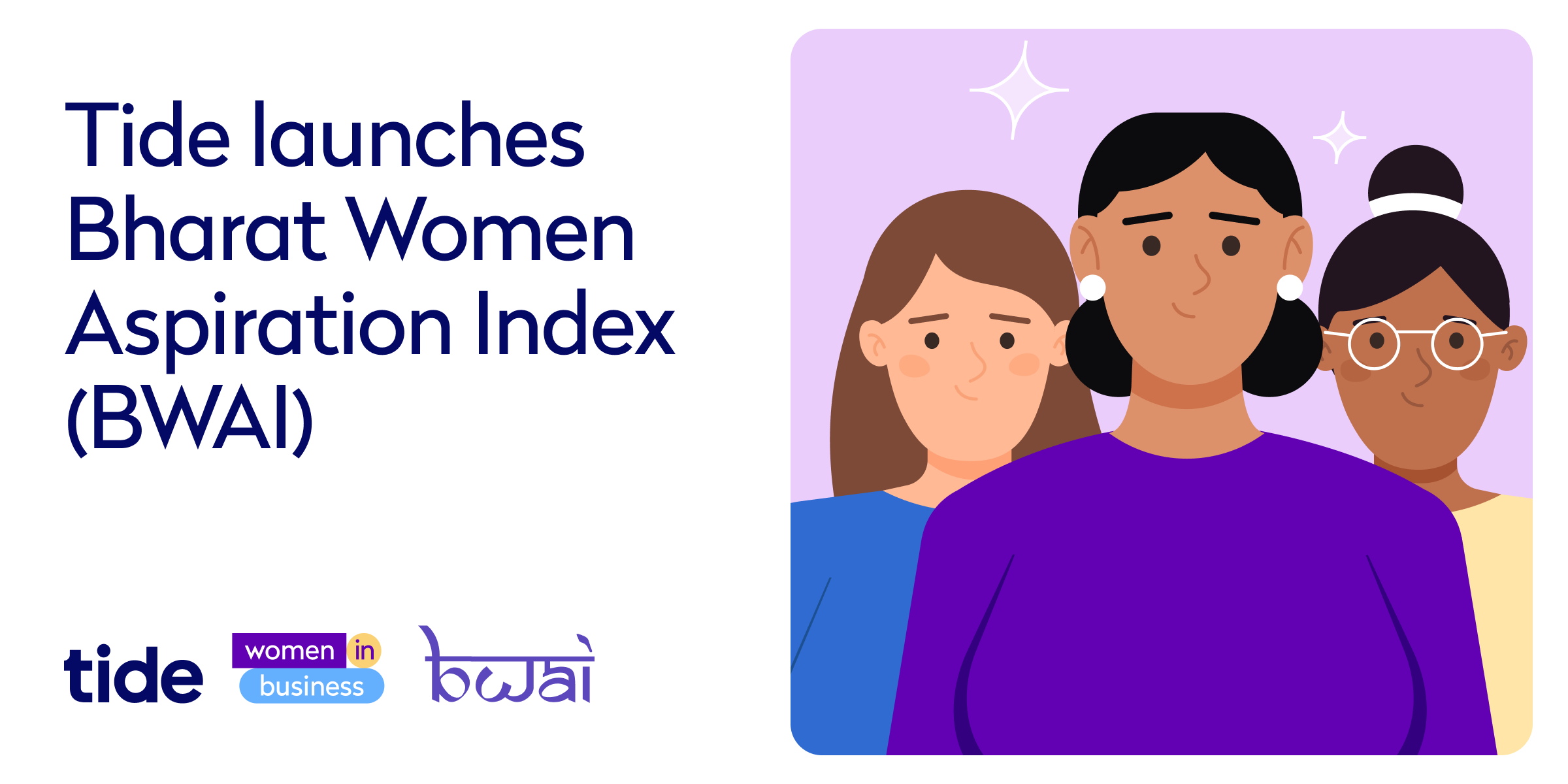
Women in Business – Q&A with Namita Sukhija, Special Projects & Public Affairs Lead, Tide India

Women entrepreneurs in India have made significant strides in recent years. They’ve defied societal norms and overcome challenges to establish themselves as key contributors to the country’s economic growth. With a blend of resilience, determination, and innovation, these women have transformed their ideas into successful businesses. And in doing so they’ve created employment opportunities and fostered socio-economic development.
According to a report by Bain & Company, the number of women entrepreneurs in India has risen by around 20% in the past decade. The report highlights that women-led businesses have the potential to create 150-170 million jobs by 2030.
The Indian government has introduced useful schemes for women-led small and medium enterprises. Programmes such as the Stand-Up India program, Mahila Samriddhi Yojana, Women Entrepreneurship Platform (WEP), Mudra Yojana for Women/ Mahila Udhyami Yojana, among others. These initiatives financially support and guide women entrepreneurs, play a crucial role in promoting women-led businesses and increase access to mentoring, training, and capital.
However, despite these initiatives, women entrepreneurs still face numerous challenges. Yet several success stories have emerged, highlighting the resilience and determination of women entrepreneurs in India.
Namita Sukhija, Tide India’s Special Projects & Public Affairs (Lead), shares her take on the challenges faced by women in business in India. She also provides useful insights and tips for women small business owners. Let’s get started.
Prateek: Hi Namita. Thanks for joining us.
Namita: Hi, Prateek. Thanks for having me. I am really happy to be a part of this discussion as this is a topic that’s close to my heart.
Prateek: That’s wonderful. What challenges do you think women entrepreneurs face in India?
Namita: Women small business owners in India face several challenges. I will highlight the ones I feel are the most significant.
Challenges faced by women entrepreneurs

Firstly, the gender bias, family and cultural expectations and social stigma. There are many deep-rooted gender stereotypes in our society that make it difficult for women to be taken seriously as entrepreneurs. These biases often lead to scepticism and unwarranted judgement based on traditional gender roles and expectations.
Women are often expected to prioritise family responsibilities over their businesses. Balancing household duties, childcare, and societal expectations can lead to limited time and resources to grow a business.
Women who choose to venture into entrepreneurship often face social stigma and resistance from their families and communities. This can lead to discouragement and isolation, which could adversely affect their mental health.
Second, the lack of supportive infrastructure. This includes lack of safe and accessible workspaces and transport and childcare facilities, creating additional hurdles for women entrepreneurs. A report by the NITI Aayog states that women entrepreneurs need to deal with mobility and logistics challenges, time poverty and unpaid care work, and safety and security issues to manage their business and grow it. This deficit restricts mobility and the ability to expand a business.
Third, limited networking opportunities. Women entrepreneurs may face challenges in accessing professional networks and mentorship opportunities. A report by the NITI Aayog indicates that nearly 67% women entrepreneurs based in non-metro cities of India lack mentorship.
Traditional business networks and social circles must be more inclusive towards women entrepreneurs, so as to not limit their access to critical resources, knowledge, and business opportunities.
Fourth, Gender Gap in financial inclusion: A study by the International Finance Corporation (IFC), World Bank Group revealed that more than 70% of the financing demands of women entrepreneurs in India remained unmet. This has translated to a financing gap of around Rs. 1.37 lakh crore for women-led small businesses who are already struggling to access financial services through formal channels. The study also points out that 90% of women-led small and medium-sized enterprises(MSME) surveyed had not availed finance from formal channels.
Moreover, the study indicates that the knowledge about government initiatives remained limited among women small business owners. The women entrepreneurs surveyed highlighted the need to simplify and expedite loan application processes, to reduce the current ~41-day average turnaround time for loans. They also voiced apprehensions about elevated borrowing expenses and the requirement for higher collateral compared to their male counterparts.
Addressing these societal challenges requires creating awareness, promoting gender equality, and fostering a supportive ecosystem that encourages and celebrates women entrepreneurs. Initiatives focusing on gender sensitisation, mentorship programmes, and providing access to networks and resources can help overcome these barriers and empower women small business owners in India.
Prateek: Thanks for sharing these insights. Let’s now focus on how women in business can grow and take their business to the next level. Do you have tips for women business owners?
Namita: Sure. I have had the pleasure of working with many inspiring women leaders during my career in law. Based on my views and experience, here are my top five tips for women entrepreneurs in India.
Top five tips for women entrepreneurs

Be confident and believe in yourself: Believe in your abilities, trust your instincts, and have faith in your vision. Being confident will help you overcome challenges, make difficult decisions, and inspire others to believe in your venture.
Build a strong support network: A strong support network will help you navigate challenges and provide a platform for learning and growth. Join a supportive network of mentors and advisors. You could seek guidance from experienced entrepreneurs, join networking groups or communities. Connect with like-minded individuals who can offer advice, support, and valuable insights.
Continuously learn and stay updated: You must stay updated with the latest trends, technologies, and business practices. Invest in your personal and professional development by attending workshops, seminars, webinars, and industry conferences. Keep learning, adapt to changes, and stay ahead of the curve to remain competitive.
Embrace calculated risks and learn from failures: Don’t be afraid to step out of your comfort zone and pursue ambitious goals. Embrace adverse situations as learning opportunities, and don’t let setbacks discourage you. Take key lessons from your setbacks for the next time you try a venture. Persistence and resilience are key to long-term success.
Seek and secure financing: Identify and gather more knowledge on different funding options, such as government schemes, grants, loans, angel investors, venture capitalists, or crowdfunding platforms, and explore which ones align with your business needs. Prepare a business plan, financial projections, and a compelling pitch to attract potential investors or lenders.
Remember, each entrepreneurial journey is unique, and success is built over time, not overnight. Stay focused, adapt to changes, leverage your strengths, and never stop believing in yourself and your business.
Prateek: These tips are great. I am certain these will be beneficial for women entrepreneurs. Lastly, can you update our readers and members on what Tide is doing to empower women-led businesses?
Namita: At Tide, we are committed to empowering women-led businesses. Both in India and the UK, Tide has taken many steps to ensure that women entrepreneurs are able to realise the true potential of their business.
Tide’s Women In Business Initiative
Tide India has made a bold commitment to support 500,000 female-led businesses start out by the end of 2027. We also plan to work as an incubator for women business owners in India. The Women in Business initiative is aimed at digitally transforming businesses in the Tier 2 and Tier 3 regions in India.
Partnership with WE Hub
In a move to empower women-led small businesses in India, WE Hub (Telangana’s state-led incubator for women entrepreneurs) and Tide have entered into a Memorandum of Understanding (MoU). This partnership is set to elevate Tide’s India Chapter of ‘Women in Business’ and enable aspiring women entrepreneurs across India to start and grow their businesses and overcome administrative challenges.
Under this partnership, we announced the Sarthika initiative to bridge the last mile delivery gap between women-led MSMEs and the state and central government schemes for them.
We also conducted our first mentorship session in Hyderabad at the WE Hub office. This was a live session that decoded the Union Budget 2023-24 for women entrepreneurs and highlighted the provisions that can help them better manage their business. We discussed the complexities of the taxation system and advised how women entrepreneurs could save time and money.
Ekatritt event in Assam
Our first-ever flagship event in India, Ekatritt, was aimed at bringing together small businesses from Assam and other states in Northeast India. During the event we organised a panel discussion – The Sarthika Dialogue – wherein noted women business owners from the northeast shared their entrepreneurial journey.
Prateek: Thanks for your time Namita. I am sure your insights will be extremely useful for women in business.
Wrapping up
In conclusion, women entrepreneurs in India are gradually breaking barriers and making remarkable strides in various sectors. However, there is a need for continued support from the government, private sector, and society at large to foster an inclusive and supportive environment that enables women to thrive as entrepreneurs, leading to greater gender equality and economic prosperity.
Disclaimer: Please note that all the information contained in this post is provided for informational purposes only. It should not be considered as expert advice on any subject matter. You should not act, nor refrain from acting on the basis of the content provided in this post without first seeking professional advice.






